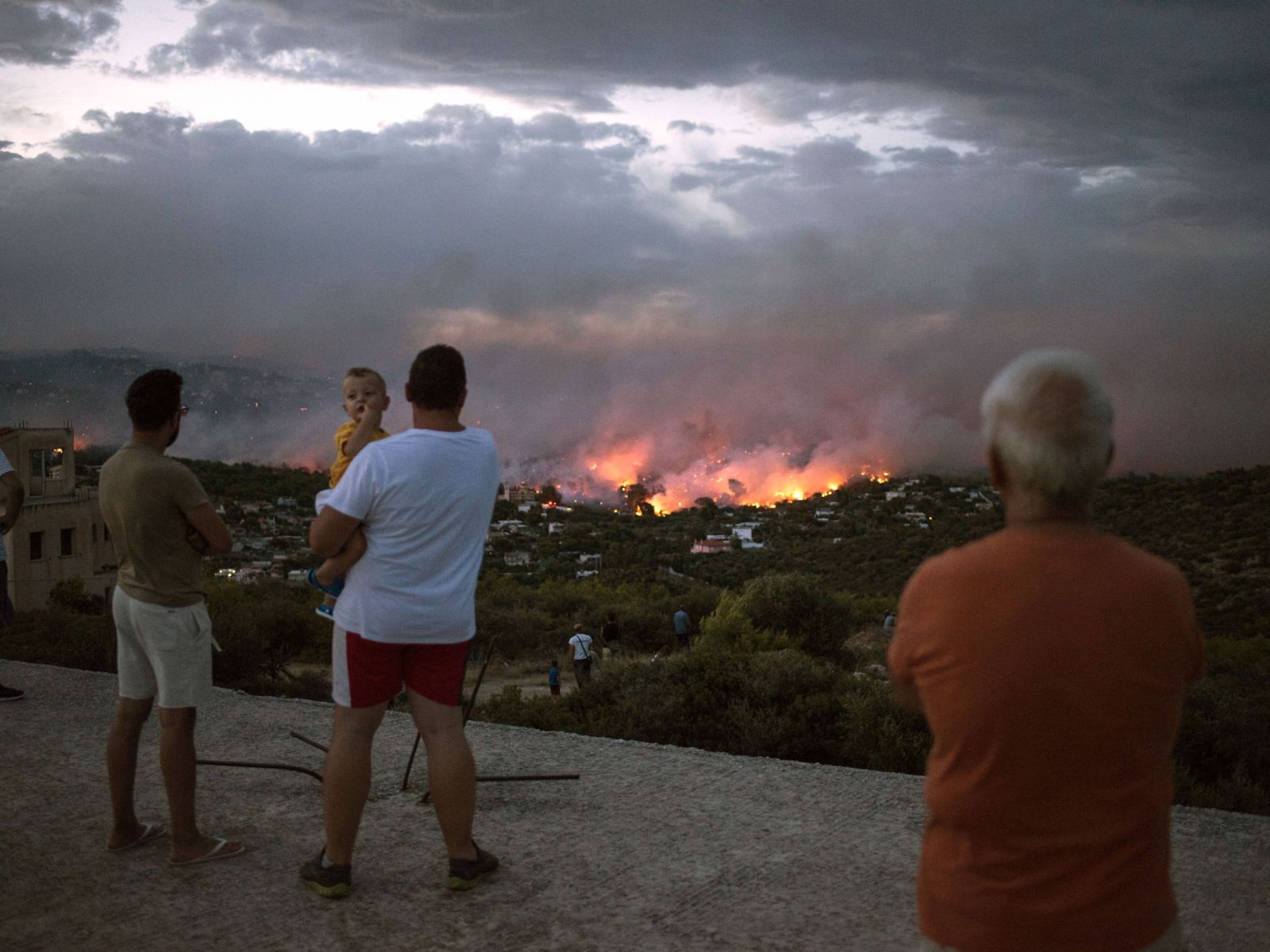Wildfire Devastates Greece
July 24, 2018 | Expert Insights

A state of emergency has been declared in the Attica region of Greece as wildfires raged through tourist towns on Monday. The country has appealed to the international community for assistance to cope with the infernos.
Background
Greece, officially the Hellenic Republic, is a country located in Southern Europe. It is bordered by Albania, Macedonia, Bulgaria and Turkey. Greece is considered the cradle of Western civilization, being the birthplace of democracy, Western philosophy, literature and drama, historiography, political science, and major scientific and mathematical principles.
A wildfire is an uncontrolled fire that wipes out large fields and areas of lands, homes and even humans. They typically originate from fires that started out of a lightning strike, human carelessness or accidents, or even arson. More than 100,000 wildfires clear 4 million to 5 million acres of land in the U.S. every year. In recent years, they have burned up to 9 million acres of land.
The Greek forest fires were a series of massive forest fires that broke out on 23 August 2007 in the southern Peloponnese peninsula. They expanded rapidly and raged out of control until they were put out in early September. They were believed to be the result of arson and negligence. Close to 500,000 people were affected and the damage was nearly 3 billion euros.
Analysis
Multiple wildfires have swept across the Attica region near Athens Monday afternoon, killing at least 49 people. 168 people had been injured and nearly 700 were rescued. The youngest victims is alleged to be a six-month old baby who died of smoke inhalation. Over 100 houses and cars have been damaged by the fire. It is considered one of the country’s worst fires in a decade.
According to the Red Cross, the seaside village of Mati, 19 km east of Athens, is at the centre of the disaster where 26 bodies were found in the yard of a villa. Mati, on the east coast of Attica, is a popular spot with local tourists, particularly pensioners and children at holiday camps. While the cause of the fires has not been identified, they may have been started by arsonists looking to burgle abandoned homes.
A state of emergency was declared in the eastern and western parts of greater Athens as fires spread by a combination of intense western winds. Greek authorities urged residents to leave areas on the western coast of Athens after many had tried to stay at their properties.
More than 300 fire fighters, seven aircraft, and 10 helicopters were mobilized to tackle the situation. Private boat operators also provided assistance to the Coast Guard with the rescue. Emergency workers used boats and helicopters to evacuate a beach in a search-and-rescue operation. The country has asked for international assistance to cope with the fires, while Italy, Germany, Poland and France have already offered aid in the form of planes, vehicles and firefighters. A military transport plane is due to arrive with 60 firefighters from Cyprus, while two water-dropping planes are expected from Spain. "We will do whatever is humanly possible to control it," Prime Minister Alexis Tsipras, who cut short a visit to Bosnia because of the crisis, stated.
As per Greek legislation, controlled or prescribed burning as a means to reduce surface fuel is not permitted. Socio-economic changes have led to land abandonment while dry weather intensified by global warming has augmented the risk of forest fires.
In the Mediterranean region, the area burned by wildfire can be expected to increase by a factor of 3–5 at the end of the twenty-first century. In Europe, major funding has been channelized into increasing the capacity to combat forest fires. For example, Italy has Europe’s largest fleet of aircraft and helicopters who has loaned them to France and Spain. The high level of preparedness has shown good results despite requiring significant resources.
Assessment
Our assessment is that areas around Athens are akin to a tinder box, due to an extremely dry winter and sweltering heat wave in which temperatures have risen above 40C. We feel that the fires in Mati are the worst ever in Greece after flames devastated the southern Peloponnese peninsula in August 2017.








Comments